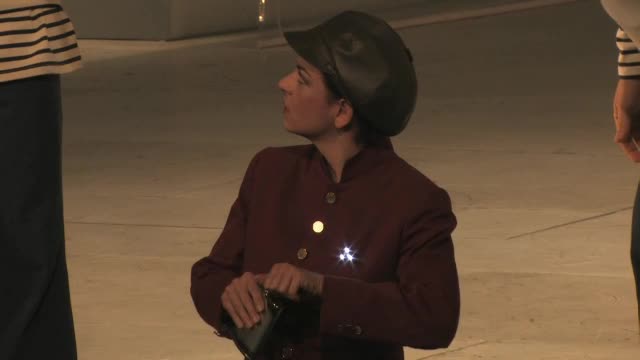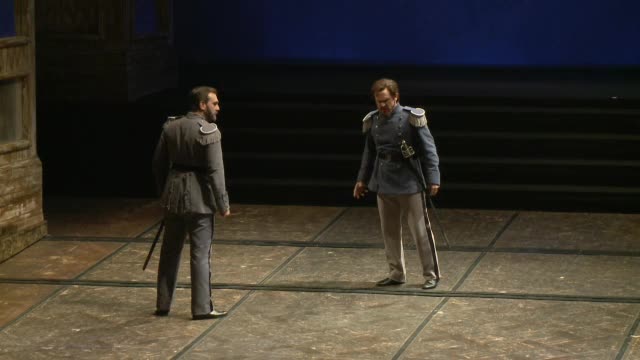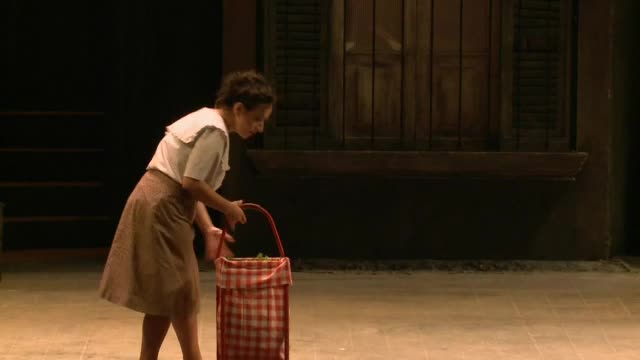Rather in the manner of Viktoria Mullova, Fabio Biondi’s playing displays a remarkable stylistic eclecticism; and it is of some significance that he transcends the boundaries not only of musical genres in his recordings and performances, but also of stylistic approaches. Being an authentic aesthetic chameleon in an age of repertoire plurality is difficult and runs the risk of not doing any of these things completely convincingly. Certainly (and this is no bad thing) Biondi’s playing, whatever the style of performance, is almost unmistakably his, with a certain freedom and rhetorical capriciousness wedded to a conspicuously emotive understanding.
Biondi’s particular interest in period-instrument performance emerged during his teenage years, at a time when this specialist area was burgeoning in Europe and the USA. Since then he has played on a range of instruments each set up appropriately for music of different eras. As well as the more widely-practised field of Baroque performance, he extends his historically-orientated activities through the Classical and Romantic eras to the present day with his Stendhal Quartet, founded in 1981.
In his recordings of early music (which form the bulk of his discography and for which he has received the most critical acclaim), this interest is allied to his highly expressive playing: something that has, it would appear, encouraged a degree of scholarly re-evaluation of such performance. That it has done so says as much about the limitations of historically-aware performance as it does about Biondi’s positive attributes. Certainly the Mozart, Marais and Vivaldi items here indicate the union of an expressive orientation with the clean sonorities and architectural plainness which we associate with the period performance movement. From a historical perspective the results are not always convincing, especially given Biondi’s use of an entirely modern vibrato in the Mozart (1997) and Vivaldi sonatas (2000) in particular. In this respect Mullova’s approach could be considered more appropriate than Biondi’s. Oxford Music Online’s pronouncement that Biondi’s playing displays ‘a magnificent technique and superb intonation’ is rather bold in the light of a number of miscalculations (especially in the otherwise interesting and convincing Malipiero Canto crepuscolare (1999)). Marais’s La Sonnerie de Ste Geneviève was recorded in the soundtrack to Alan Corneau’s film Tous les matins du monde (1991), a biographical tale about Marin Marais and his mentor Saint-Colombe; this film was influential at the time in popularising early instruments and previously-overlooked early composers.
Biondi’s Prokofiev Solo Sonata (1994) is well-articulated and much as one would expect of a player of his generation, although his tone is rather whimsical. There are moments of almost jazz-like style (such as Grappelli-like slides from under the note) and equally there are soulful moments with lots of vibrato mixed with straight tones. The totality is interesting but not, perhaps, wholly convincing. From the same album, Rode’s Caprice No. 24 has a looseness which is highly imaginative: to most ears this will be an eccentric, quasi-extempore reading.
Historical inexactitudes and technical imperfections aside, what is apparent throughout Biondi’s recorded repertoire is a unique personality. Given the contention that recent style is too uniform, this is most welcome. Rather in the manner of Viktoria Mullova, Fabio Biondi’s playing displays a remarkable stylistic eclecticism; and it is of some significance that he transcends the boundaries not only of musical genres in his recordings and performances, but also of stylistic approaches. Being an authentic aesthetic chameleon in an age of repertoire plurality is difficult and runs the risk of not doing any of these things completely convincingly. Certainly (and this is no bad thing) Biondi’s playing, whatever the style of performance, is almost unmistakably his, with a certain freedom and rhetorical capriciousness wedded to a conspicuously emotive understanding.
Historical inexactitudes and technical imperfections aside, what is apparent throughout Biondi’s recorded repertoire is a unique personality. Given the contention that recent style is too uniform, this is most welcome.
© Naxos Rights International Ltd. — David Milsom (A–Z of String Players, Naxos 8.558081-84)
| Title | |
| CAVALLI, F.: Virtu de' Strali d'Amore (La) [Opera] (Teatro Malibran, 2008) | |

|
CAVALLI, F.: Virtu de' Strali d'Amore (La) [Opera] (Teatro Malibran, 2008)
Composer:
Cavalli, Francesco
Artists:
Abbondanza, Roberto -- Adami, Filippo -- Arcari, Cristiana -- Bertagnolli, Gemma -- Biondi, Fabio -- Europa Galante -- Invernizzi, Roberta -- Lombardi, Donatella -- Morace, Filippo -- Nicotra, Carmelo -- Piccinini, Monica -- Sancho, Juan -- Scavazza, Marco -- Storti, Milena -- Zoccatelli, Gian Luca
Label/Producer: Dynamic |
| DONIZETTI, G.: Anna Bolena (1840 version) (Reate Festival, 2013) | |

|
DONIZETTI, G.: Anna Bolena (1840 version) (Reate Festival, 2013)
Composer:
Donizetti, Gaetano
Artists:
Allemano, Carlo -- Belcanto Ensemble -- Belli, Martina -- Benetti, Federico -- Biondi, Fabio -- Garcia, Moises Marin -- Polverelli, Laura -- Torbidoni, Marta -- Tsantinis, Dionisos
Label/Producer: Dynamic |
| PERGOLESI, G.B.: Frate 'nnamorato (Lo) (Fondazione Pergolesi Spontini, 2011) | |

|
PERGOLESI, G.B.: Frate 'nnamorato (Lo) (Fondazione Pergolesi Spontini, 2011)
Composer:
Pergolesi, Giovanni Battista
Artists:
Adamonyte, Jurgita -- Alaimo, Nicola -- Alegret, David -- Belfiore, Elena -- Biccire, Patrizia -- Biondi, Fabio -- Bove, Rosa -- Castri, Barbara di -- Cherici, Laura -- Europa Galante -- Morace, Filippo
Label/Producer: UNITEL |
